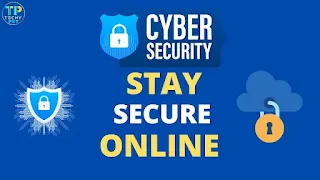Staying secure online is crucial in today's digital age, as more and more personal and sensitive information is shared and stored on the internet. Here are a few tips to help you stay secure online:
- Use strong and unique passwords for each of your online accounts. Avoid using easily guessable information, such as your name or birthdate, in your passwords. A password manager can help you generate and store strong, unique passwords for all of your accounts.
- Keep your computer and other devices updated with the latest security patches and software updates. These updates often contain important security fixes that can protect your devices from known vulnerabilities.
- Use anti-virus and anti-malware software to protect your computer and devices from malware, viruses, and other malicious software. Make sure to keep the software updated and schedule regular scans of your device.
- Be cautious when clicking on links or downloading attachments from unknown sources. These can often contain malware or phishing scams, which can steal your personal information or infect your device.
- Use a virtual private network (VPN) when connecting to public Wi-Fi networks. A VPN encrypts your internet connection and can protect your personal information from being intercepted by hackers on public networks.
- Be wary of phishing scams, which are attempts to trick you into providing personal information or login credentials through fake emails or websites. These scams often impersonate legitimate organizations or companies.
- Be careful about the personal information you share online. Be mindful of the privacy settings on your social media accounts and limit the amount of personal information you share publicly.
- Be careful of the information you shared on your Social media account. Be sure to check privacy settings, and try to share only what is necessary.
- Back up your important files and data to a secure location, such as an external hard drive or cloud-based storage service. This can help protect your data in case your device is lost, stolen, or damaged.
- Lastly, be aware of the latest cyber threats and best practices for staying secure online. Stay informed about new viruses, malware, and other threats by reading articles, listening to podcasts, or attending webinars.
By following these tips and being vigilant about your online security, you can help protect your personal and sensitive information from being compromised. Remember that the internet is constantly evolving and new security threats are emerging all the time, so it's important to stay informed and aware to protect yourself online.

